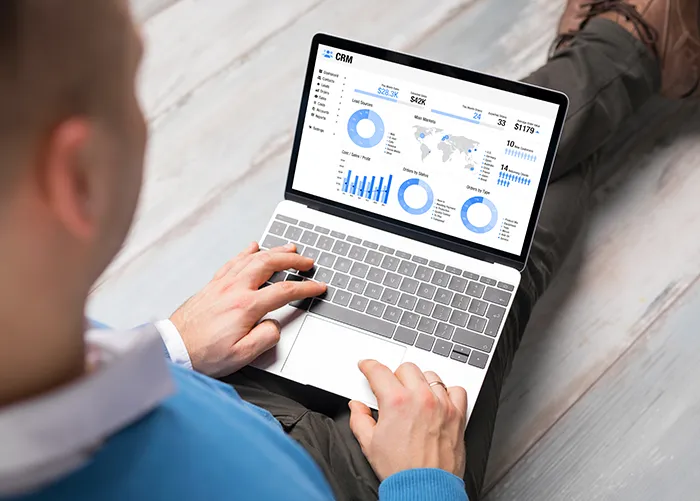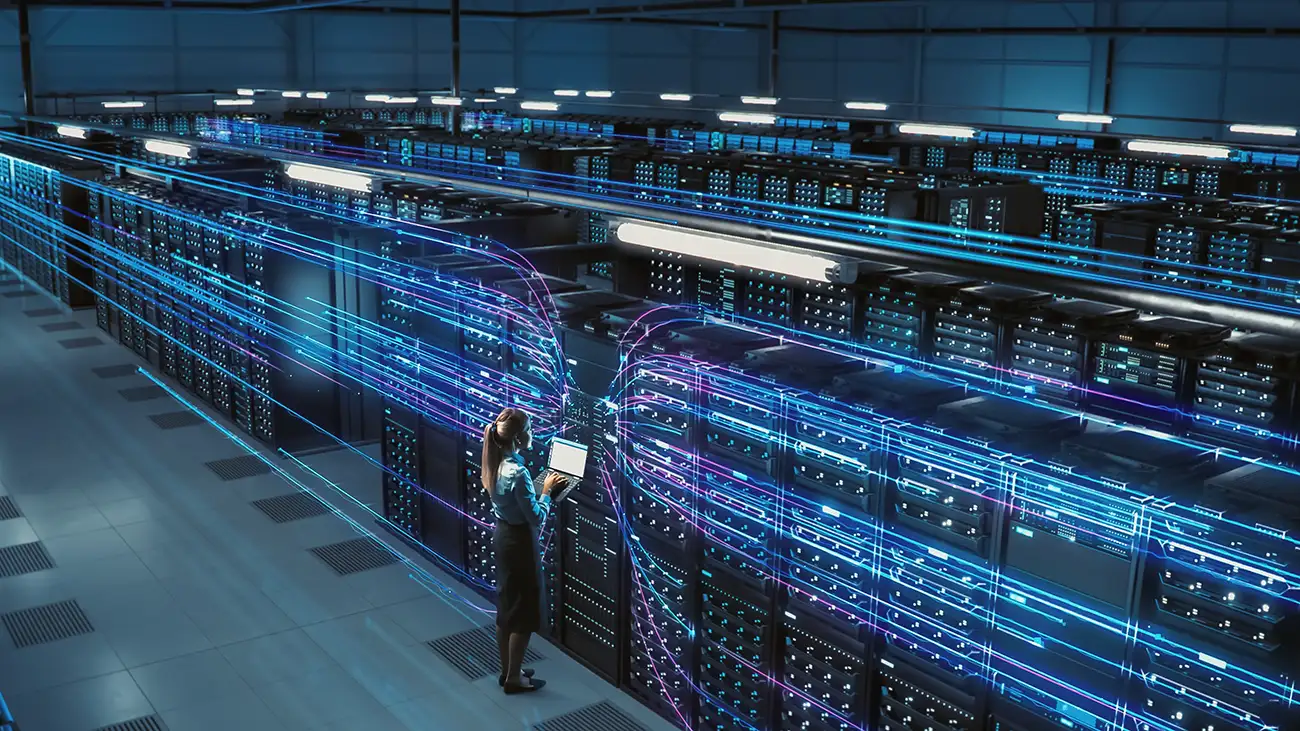Customer Relationship Management (CRM) systems help businesses manage their interactions with current and potential customers.
As these systems store sensitive customer data, it is important to ensure CRM security. By taking proper measures, companies can protect their valuable information from unauthorized access and data breaches.
This guide will show you the top practices for CRM security. You will learn how to safeguard your data and build trust with your customers. With the right knowledge, you can make sure your CRM system stays safe.
Introduction
CRM systems handle sensitive customer information, so it’s important to keep them secure. When you use your CRM system, make sure you regularly update. Updates often fix security flaws.
By keeping your system up to date, you can protect your data from new threats. Security measures are easier to manage when the software is current.
Security measures play a key role in protecting your CRM system. Use strong passwords and change them often.
Enable two-factor authentication to add an extra layer of security. Limit access to sensitive information only to those who need it.
Train your staff on top practices for data security. With these steps, you can maintain a secure CRM system and protect customer data.
Understanding CRM Security
CRM security measures keep data safe. Data encryption protects information from hackers. This process changes data into a code.
Only people with the correct key can access this information. Encrypting your data ensures it stays safe, both when stored and during transfer.
Data loss can hurt your business. Use backups to prevent data loss. Store backups in a secure place. Regularly check that your backups work.
By ensuring data safety with backups, you can recover quickly from any issues. Having a solid plan helps protect customer trust and prevents interruptions in service.
How to Choose the Right CRM
Choosing the right CRM is vital to your business. Look for a system that offers strong security features. Check if it provides data encryption and regular software updates. Make sure the CRM has reliable backup options to keep your data safe.
You should also see if it has user-friendly controls, so your team can use it easily. Good CRMs have two-factor authentication to add extra security. Pick a CRM that fits your business needs and protects your customer data.

Common Security Threats to CRM Systems
CRM systems face several common security threats. Hackers often try to steal data through phishing attacks. They send fake emails to trick users into giving away their login details. This allows them to access sensitive information.
Malware is another threat. It can enter your system through infected files or websites. Once inside, it can steal or damage your data. Regular system checks and employee training can help protect against these threats.
Data breaches can happen if your CRM vendor does not follow data protection regulations. These regulations ensure that customer data stays safe during customer interactions. Always choose CRM vendors that comply with these rules.
This keeps your data secure and builds trust with your customers. Keeping your CRM system updated and following sound security practices will help you avoid these common threats.

Importance of Data Encryption
Data encryption stands as a critical part of CRM security. It makes customer data unreadable to anyone without the right key.
By encrypting data, companies ensure that even if hackers access it, they cannot understand it. This measure protects sensitive information from unauthorized eyes. It keeps data safe, whether stored in a database or transferred between systems.
Encrypting data also builds trust with customers. If you have data encryption automation, it speeds up the process tremendously. When customers know you protect their information, they feel more confident sharing it.
This trust strengthens customer relationships and boosts company reputation. Using data encryption shows that a company values its customers’ privacy. This simple but powerful step enhances overall CRM security and keeps data protected.
Role-Based Access Control
Role-based access control (RBAC) limits what each user can see and do in a CRM system. Users only get access to the information they need for their role. This reduces the risk of a data breach.
Companies using CRM systems can protect sensitive data by giving fewer people access to it. This control keeps customer data safer and follows general data protection regulation rules.
RBAC improves customer relationship management (CRM) by making sure each user can focus on their tasks without extra distractions.
Managers can set permissions for different roles, like sales or marketing, so each team member sees only what they need. This reduces the chance of human error and helps prevent data breaches.
By implementing RBAC, companies can keep their CRM system secure and maintain customer trust.
Regular Security Audits
Regular security audits help maintain robust security for your CRM system. By scheduling these audits often, you catch any weak points before they become enormous problems.
Audits check if your system follows data protection rules. They keep track of who accessed data and if someone made changes. If something looks off, you can fix it fast to protect customer trust.
A trusted CRM system makes customers feel safe sharing their information. Security audits are a big part of this.
By showing you care about security, you build customer trust. Regular checks to make sure the CRM software and employee practices stay updated.
This way, your CRM system remains a trusted and secure place for all customer data.
Integrating Multi-Factor Authentication
Multi-factor authentication (MFA) adds an extra layer of protection to your CRM system. MFA requires users to provide two or more pieces of evidence before they can access the system. This makes it harder for hackers to break in.
Even if they get a password, they still need another form of proof, like a code sent to a phone. This helps keep sensitive data safe from security breaches.
MFA also improves access control. Only the right people can get in. It makes sure employees use the right security steps every time they log in.
This cuts down on mistakes and keeps data safe. With MFA, your team can use the CRM system with confidence, ensure you protect data. This keeps customer trust high and your data secure.

Employee Training and Awareness
Employees play a key role in keeping your CRM system secure. Regular training helps them understand best practices for data protection.
Teach them how to spot phishing emails that trick them into giving away login details. Show them how to use strong passwords and change them often. Make sure they use multi-factor authentication. This adds another layer of security.
Training should be ongoing so that employees stay current with the latest security measures.
Awareness is just as important as training. When employees know the risks, they can act to avoid them. Teach your team to be careful when they access the CRM. Encourage them to report any suspicious activity in real time.
This helps catch threats quickly and keeps data safe. Promote a culture of security in your company. Clarify that everyone protects customer information. This keeps your CRM system safe and builds trust with your customers.
Backup and Recovery Plans
Backing up your data is a key part of CRM security. Create regular backups to make sure you can restore your data if needed.
Use automated backup systems to keep this process simple and consistent. Store these backups in secure, off-site locations. This protects your data from disasters like fires or floods in your main office and keeps customer information safe.
Recovery plans are also essential for CRM security. If a breach or failure occurs, a recovery plan helps you restore data quickly.
Test your recovery plans often to see if they work well. Make sure all employees know what to do during a recovery process. Simple instructions and practice keep everyone ready. This quick response minimizes the damage and keeps customer trust strong.
Future Trends in CRM Security
Companies use new technologies to make CRM security stronger. Artificial intelligence (AI) helps find and stop threats faster. AI can look at data and find strange actions in real-time. This quick action keeps data safe.
Blockchain technology also makes CRM security better. It keeps records clear and hard to change. This protects data from tampering and keeps it secure.
Cloud services are changing CRM security too. More companies store data in the cloud because it is safer and easier to access.
Cloud providers use strong security measures to keep data safe. They often update their systems to fight new threats. Companies that use the cloud can use these updates without extra work. This helps keep their CRM security up-to-date and their data protected.
